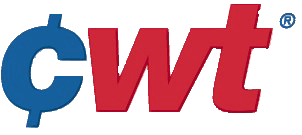Senate Ag Committee Approves Bill Bringing More Milk Options to Schools
February 03, 2016The Senate Agriculture Committee approved legislation on Jan. 20 that would enhance America’s child nutrition programs, including provisions sought by NMPF that would help reverse the decline of milk consumption in schools.
This bill, a product of several years of coordinated effort by NMPF and the International Dairy Foods Association, directs the Department of Agriculture to review milk consumption in both the school meal program and the Special Supplemental Nutrition Program for Women, Infants and Children (WIC). It also calls for adjustments to promote greater consumption of milk as recommended by the federal dietary guidelines, which were released in early January. The new federal dietary guidelines reinforced the need for three servings of dairy foods per day, and provide the basis for USDA programs governed by the child nutrition act.
The Senate legislation includes language similar to a House bill that NMPF and IDFA endorsed in 2015. The bipartisan School Milk Nutrition Act (H. R. 2407) is still awaiting action in a House subcommittee.
NMPF has warned USDA in the past that milk consumption in schools would likely continue to decline if flavored milk servings remain limited to nonfat-only. NMPF has argued that many children dislike the taste of nonfat milk, choosing other beverages instead. Since milk is the number one source of nine important nutrients — including calcium, potassium and Vitamin D — in children’s diets, this means fewer beneficial nutrients, , are consumed by schoolchildren who aren’t drinking milk.
NMPF applauded the Senate committee action in a statement after the January hearing.
“The nutrition bill reflects the latest findings of the DGA, which indicated that consumption of dairy foods provides numerous health benefits, including a lower risk of diabetes, metabolic syndrome, cardiovascular disease and obesity,” the statement said.
U.S. Dairy Industry Provides Preliminary Assessment of Trans Pacific Partnership
February 03, 2016Testifying on behalf of the U.S. Dairy Export Council and NMPF, USDEC President Tom Suber told the U.S. International Trade Commission (USITC) last month that the U.S. dairy sector is completing its evaluation of the potential impact of the pending Trans-Pacific Partnership (TPP) agreement finalized last fall. NMPF and USDEC have collaborated closely on TPP to present a united U.S. dairy industry view on the agreement.
USITC held three days of hearings to gather information for an economic analysis of TPP as mandated by Trade Promotion Authority legislation. That analysis includes the agreement’s impact on specific business sectors, such as agriculture. The dairy industry testimony, following detailed written comments to USITC submitted jointly by USDEC and NMPF in December, outlined the U.S. dairy sector’s issues and concerns related to TPP.
NMPF’s economic analysis of the market access elements of TPP remains underway. Thus, Suber’s testimony focused on landmark non-tariff achievements in the agreement dealing with sanitary and phytosanitary (SPS) rules and geographical indication (GI) provisions. TPP is the first U.S. trade agreement to include rules and disciplines on SPS measures that go beyond those contained in the World Trade Organization (WTO) agreement. Furthermore, prior to TPP, U.S. trade deals were virtually silent on GIs. TPP’s groundbreaking GI provisions are intended to establish a more equitable international model for dealing with GI registration, in sharp contrast to the flawed European Union approach that uses GIs as bargaining chips for market access.
The joint submission also identified a number of additional factors pertinent to USITC’s assessment efforts, and urged the agency to take them into account. Those factors include TPP’s impact on U.S. exports in existing free trade partner markets such as Mexico and Peru, in light of competition from Australia and New Zealand; the impact of U.S. tariff elimination on milk powders and cheeses; the expected level of exports from Canada to the United States; the likelihood of obstructive regulatory barriers; the degree of flexibility created by the agreement’s rules of origin; and the use of new TPP safeguard provisions by the United States.
NMPF Redoubles Focus on TTIP Talks
February 03, 2016 The U.S. government has set a goal to conclude trade talks with the European Union on the Trans-Atlantic Trade and Investment Partnership (TTIP) by the end of this year. NMPF, USDEC and the International Dairy Foods Association joined last month to meet with the inter-agency team of the U.S. Trade Representative, Department of Agriculture, and Food and Drug Administration, in order to reiterate the importance of focusing TTIP non-tariff dairy discussions on the $1 billion dairy trade deficit between the U.S. and the EU. The united industry message reinforced what dairy organizations have insisted is essential from the outset of TTIP: streamlining and simplifying the EU’s dairy certification requirements by securing approval of the safety of the U.S. dairy system and an accompanying commitment to avoid introducing unwarranted new import requirements.
The U.S. government has set a goal to conclude trade talks with the European Union on the Trans-Atlantic Trade and Investment Partnership (TTIP) by the end of this year. NMPF, USDEC and the International Dairy Foods Association joined last month to meet with the inter-agency team of the U.S. Trade Representative, Department of Agriculture, and Food and Drug Administration, in order to reiterate the importance of focusing TTIP non-tariff dairy discussions on the $1 billion dairy trade deficit between the U.S. and the EU. The united industry message reinforced what dairy organizations have insisted is essential from the outset of TTIP: streamlining and simplifying the EU’s dairy certification requirements by securing approval of the safety of the U.S. dairy system and an accompanying commitment to avoid introducing unwarranted new import requirements.
As the U.S. and EU work to intensify TTIP negotiations this year and the EU pushes aggressively to capitalize on its $1 billion trade advantage, NMPF is focused on ensuring that any potential agreement address the trade barriers confronting U.S. dairy exporters in attempting to access the European market. This focus also includes a strong drive to combat the EU’s efforts to abuse geographical indications as a non-tariff barrier designed to hamper competition from U.S. cheese companies.
“We will oppose any agreement that seeks to impose GI status on generic cheese names, and we are heartened by the strong Congressional support for our view that has been expressed in numerous bi-partisan communications on the subject,” said NMPF President and CEO Jim Mulhern. “TTIP’s focus needs to be on removing barriers to US dairy exports to the EU and other key global markets, not on allowing the EU to secure protection for its GIs while ignoring the creeping threat of nontariff barriers confronting US exports as a result of the EU’s policies.”
CWT assists in capturing 8.4 million pounds of dairy product export sales contracts
February 03, 2016 NMPF’s Cooperatives Working Together members gained 37 contracts in January to sell 4.288 million pounds of cheese, 2.866 million pounds of butter and 1.866 million pounds of whole milk powder to customers in Asia, Central America, the Middle East, North Africa, Oceania and South America. The product will be shipped from January-July 2016.
NMPF’s Cooperatives Working Together members gained 37 contracts in January to sell 4.288 million pounds of cheese, 2.866 million pounds of butter and 1.866 million pounds of whole milk powder to customers in Asia, Central America, the Middle East, North Africa, Oceania and South America. The product will be shipped from January-July 2016.
These CWT-assisted transactions will move the equivalent of more than 113 million pounds of milk on a milkfat basis to customers in 11 countries on five continents.
Helping CWT member cooperatives gain and maintain world market share through the export assistance program expands the demand for U.S. dairy products and the farm milk that produces them. This positively impacts all U.S. dairy farmers by strengthening and maintaining the value of dairy products that directly impact their milk price.
The amount of dairy products and related milk volumes reflect current contracts for delivery, not completed export volumes. CWT will pay export assistance to the bidders only when export and delivery of the product is verified by the submission of the required documentation.
“In light of the ongoing weakness in world market prices, CWT is again proving to be a very important program to help move U.S. dairy products overseas, thereby improving the supply-demand balance in the domestic market,” NMPF President and CEO Jim Mulhern said.
All cooperatives and dairy farmers are encouraged to add their support to this valuable program. Membership forms are available online.
FARM Program Upcoming Training Courses & Webinars
February 03, 2016In the past month, NMPF staff have hosted webinars for more than 500 staff of member cooperatives and proprietary processors participating in the FARM Program. The webinars provided updates on the status of the industry’s comprehensive animal care program, as well as information that can be provided to customers who have questions about the dairy industry’s commitment to addressing this important issue. These outreach efforts will continue in 2016, as the FARM Program will offer two additional webinar series: one on animal care, and one on drug residue prevention. Both series will focus on best management practices, communications and training resources available. Be sure to visit the FARM website for dates and times.
As the FARM Program transitions toward Version 3.0 in January 2017, every available resource will be devoted to ensuring that those who help implement the program are aware of the changes and are prepared to assist producers in addressing the new guidelines. Specifically, at least three Train-the-Trainer courses will be offered in August, September and November to ensure all staff involved with 2nd party FARM Program evaluations are re-trained on the new format. For specific dates and locations, visit the FARM website.
Also, planning is underway for the inaugural FARM Program Evaluator Conference, to be held in conjunction with NMPF’s Joint Annual Meeting in Nashville, Tenn., this October. The Evaluator Conference was requested by multiple FARM Program cooperatives as a way to encourage collaboration to better implement the program.
NMPF Opposing New Raw Milk Bill Introduced in Maryland
February 03, 2016 NMPF is opposing a state bill that came before the Maryland House of Delegates in early February that would legalize the sale of raw milk in the state.
NMPF is opposing a state bill that came before the Maryland House of Delegates in early February that would legalize the sale of raw milk in the state.
In testimony sent to state legislators, NMPF and the International Dairy Foods Association expressed their opposition to House Bill 79, designed to allow the direct sale to consumers of raw milk and raw milk products in Maryland. NMPF and IDFA cited the significant public health risks associated with the consumption of milk that has not undergone pasteurization. Currently, direct sale of raw milk to consumers is not legal in Maryland.
“No claim related to the health benefits of consuming raw milk has been substantiated in any of the medical literature,” both organizations said. “Raw milk is a key vehicle in the transmission of human pathogens, including E. coli O157:H7, Campylobacter, Listeria monocytogenes, and Salmonella.”
NMPF and IDFA’s testimony cited critical evidence from the Centers for Disease Control and Prevention to support their argument. According to a 2012 CDC report, between 1993 and 2006, unpasteurized dairy products resulted in 73 known outbreaks and nearly 75% of raw milk-associated outbreaks have occurred in states where sale of raw milk was legal. Additionally, two-thirds of all raw milk and raw dairy product outbreaks involve children.
Following a hearing for a similar bill in January 2014, the state legislature’s Health and Government Operations Committee requested a study on the risks and benefits of consuming raw cow’s milk, which was conducted by Johns Hopkins University and the Johns Hopkins Bloomberg School of Public Health. Ultimately, the report concluded “that drinking raw milk carries an increased risk of foodborne illness as compared to drinking pasteurized milk. Based on our findings, we discourage the consumption of raw milk.”
NMPF Working with State of Maryland on Nutrient Trading Program
February 03, 2016 As part of NMPF’s ongoing focus on developing new markets for dairy farmers in the environmental area, NMPF staff have been working with officials in Maryland who are developing a new Nutrient Trading Program.
As part of NMPF’s ongoing focus on developing new markets for dairy farmers in the environmental area, NMPF staff have been working with officials in Maryland who are developing a new Nutrient Trading Program.
Maryland’s Nutrient Trading Program, scheduled to be finalized later this year, will include the agriculture sector so that point sources and agricultural nonpoint sources alike can start benefitting from a new market in environmental products, such as managing the nutrient flow from livestock operations.
While policies that define the basic structure of the program are still in development, the purpose of Maryland’s program includes “establishing economic incentives for reductions from all sources within a watershed and achieving greater environmental benefits than through, existing regulatory programs,” according to the program’s website.
One of the key principles established for agricultural nonpoint source credit generation is that farming operations must first meet baseline requirements before generating credits. The baseline is determined by the level of nutrient reduction called for in the Tributary Strategy for a farm’s respective basin. Any reductions beyond that are eligible to generate credits, which can be sold on the Maryland Nutrient Trading Program’s marketplace. The marketplace is where the buying and selling of nutrient credits, for nitrogen and phosphorous, occurs.
While still in its infancy, the Maryland program offers an example of how a market for farm nutrients could be constructed. Creating this type of market has been one of NMPF’s key goal in the environmental policy area, and helped lead to the formation of the new co-op business entity Newtrient LLC in 2015.
For agricultural operations, certain land use (like crop conversions) and agronomic practices (cover crops, reduced fertilizer application, and manure export), along with structural Best Management Practices, or BMPs (riparian buffers, livestock fencing, etc.), are eligible to produce credits. To qualify, these practices must be certified and inspected. In comments filed with the Maryland Department of Agriculture on January 27, NMPF urged the state to broaden eligible practices to include nutrient recovery technologies and to allow for long-term trades, specifically, 10 years or longer. When NMPF raised that issue earlier this year at a nutrient trading symposium, Maryland officials stated that technology-based trading does have merit and is under consideration.
NMPF staff will meet regularly with Maryland officials over the next few months to advocate for sensible revisions to the program. The goal is to create a robust trading program that will benefit dairy farmers in Maryland and serve as a model for other jurisdictions.
NMPF Staff to Lead FSMA Training in April and May
February 03, 2016 Trained NMPF staff are offering the dairy processing industry the necessary courses to become compliant with the FSMA Preventive Controls for Human Food rule. NMPF is planning a course for the dairy industry in Arlington in April.
Trained NMPF staff are offering the dairy processing industry the necessary courses to become compliant with the FSMA Preventive Controls for Human Food rule. NMPF is planning a course for the dairy industry in Arlington in April.
The Food Safety Preventive Controls Alliance (FSPCA) course is the standardized curriculum that the Food and Drug Administration (FDA) considers adequate; taking the FSPCA training will meet the requirements in the rule for training of a preventive controls qualified individual.
The Preventive Controls (PC) rule requires each food processing facility to have a “preventive controls qualified individual” on staff who has successfully completed training in the development and application of risk-based preventive controls, or has equivalent job experience to develop a food safety system.
 The course agenda and materials for these courses were developed by FSPCA under a grant from FDA. Each course will last 2½ days, providing attendees with the knowledge to allow them to develop the necessary food safety plans to meet the new and enhanced FDA requirements that go into effect over the next three years.
The course agenda and materials for these courses were developed by FSPCA under a grant from FDA. Each course will last 2½ days, providing attendees with the knowledge to allow them to develop the necessary food safety plans to meet the new and enhanced FDA requirements that go into effect over the next three years.
Attendees will receive a registered Certificate of Attendance that is a part of the requirement to be a “Preventive Controls Qualified Individual.” This will allow those individuals to demonstrate that they have attended the recommended training to be able to develop, implement and monitor a company’s food safety plan.
To register for the course, click here. The registration deadline is February 26, 2016. Additional course offerings will be scheduled as requested. Please contact Beth Briczinski or Clay Detlefsen for further details about NMPF course offerings.
NMPF Welcomes Paul Bleiberg as New Senior Director of Government Relations
February 03, 2016 Paul Bleiberg joined the National Milk Producers Federation staff last month as Senior Director of Government Relations, bringing with him 10 years of government and agriculture policy experience with a strong focus on dairy policy.
Paul Bleiberg joined the National Milk Producers Federation staff last month as Senior Director of Government Relations, bringing with him 10 years of government and agriculture policy experience with a strong focus on dairy policy.
For the last five years, Bleiberg worked for Rep. Reid Ribble (R-WI) as both legislative director and later deputy chief of staff. His duties included managing Ribble’s legislative operations in the House of Representatives, and advising him in the areas of agriculture, trade and transportation. Bleiberg has played a significant role in several pieces of legislation, including 2015’s massive transportation reauthorization bill. In 2014, he worked with Rep. Ribble to secure the inclusion of the Wisconsin dairy industry’s priorities in the 2014 farm bill conference report.
Prior to his position in Ribble’s office, Bleiberg worked for two years as a consultant to agriculture and food industry clients regarding dairy policy, nutrition and food safety. He also worked as a legislative assistant in the Capitol Hill offices of former New York Republican congressmen Randy Kuhl, Jr., and Sherwood Boehlert.
“Paul is widely recognized as one of the go-to staffers on dairy policy in Congress,” said NMPF President and CEO Jim Mulhern. “His connections to farm policy, our member co-ops and rural America make him a valuable addition to our team.”
Bleiberg is a native of New Hartford, N.Y. He graduated from Hamilton College with a bachelor’s degree in government.
2016 NMPF Scholarship Program Still Welcoming Applications
February 03, 2016 The National Milk Producers Federation continues to accept applications for its National Dairy Leadership Scholarship Program for academic year 2016-2017. Applications must be received no later than Friday, April 8, 2016.
The National Milk Producers Federation continues to accept applications for its National Dairy Leadership Scholarship Program for academic year 2016-2017. Applications must be received no later than Friday, April 8, 2016.
Each year, NMPF awards scholarships to outstanding graduate students (enrolled in Master’s or Ph.D. programs) who are actively pursuing dairy-related fields of research that are of immediate interest to NMPF member cooperatives and the U.S. dairy industry at large.
Graduate students pursuing research of direct benefit to milk marketing cooperatives and dairy producers are encouraged to submit an application. Applicants do not need to be members of NMPF to qualify. The top scholarship applicant will be awarded the Hintz Memorial Scholarship, which was created in 2005 in honor of the late Cass-Clay Creamery Board Chairman Murray Hintz.
Recommended fields of study include, but are not limited to, Agriculture Communications and Journalism, Animal Health, Animal and/or Human Nutrition, Bovine Genetics, Dairy Products Processing, Dairy Science, Economics, Environmental Science, Food Science, Food Safety, Herd Management, and Marketing and Price Analysis.
For an application or more information, please visit the NMPF website or call the NMPF office at 703-243-6111.
Margin Protection Program Forecast
February 03, 2016NMPF’s forecast for 2016 MPP margins – based on early February milk and feed futures prices – indicates that margins early in 2016 may dip below the $8 threshold in the spring before strengthening in the latter half of 2016. As evidenced by the wide confidence interval, a high degree of uncertainty remains in milk and new crop feed prices.






